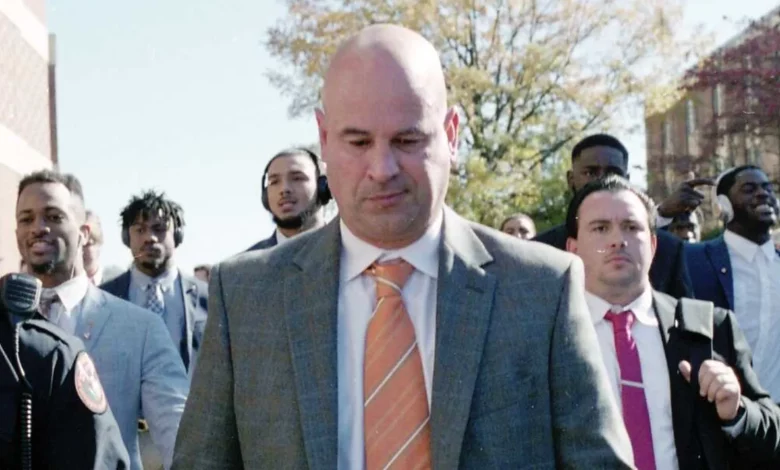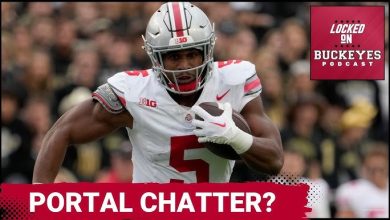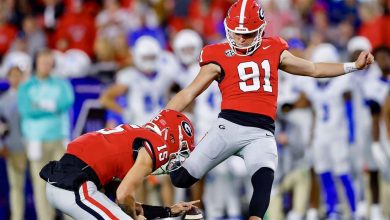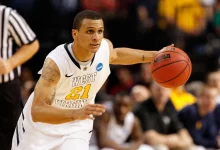Former Tennessee Volunteers football coach Jeremy Pruitt is suing the NCAA for big money.

Former Tennessee Volunteers Football Coach Jeremy Pruitt Sues the NCAA for Big Money
In the world of college athletics, the relationship between coaches, schools, and governing bodies like the NCAA can often become complicated. When things go wrong, the consequences can be severe, especially for coaches and universities facing allegations and punishments from the NCAA. One such case that has garnered attention is that of Jeremy Pruitt, the former head coach of the Tennessee Volunteers football team. In a dramatic turn of events, Pruitt has filed a lawsuit against the NCAA, seeking a significant financial settlement in the wake of his dismissal and the fallout from alleged violations during his tenure at Tennessee.
The lawsuit, which was filed in the United States District Court, claims that the NCAA improperly imposed sanctions on Pruitt and the Tennessee football program. The case has drawn significant media attention, as it sheds light on the complex legal and financial battles that can occur after major violations, as well as the impact on a coach’s career and livelihood.
This lawsuit is far from just a legal battle—it represents a crossroads in college athletics, where coaches and schools are challenging the authority of the NCAA and demanding greater accountability for the organization’s actions. The legal actions taken by Pruitt may have far-reaching consequences for the future of college football and the way the NCAA enforces its rules.
The Rise and Fall of Jeremy Pruitt at Tennessee
Jeremy Pruitt’s tenure at Tennessee was marked by high expectations and an ultimately disappointing outcome. When Pruitt was hired as the head coach of the Volunteers in 2018, he came with a solid pedigree—having served as the defensive coordinator at Alabama under Nick Saban, one of the most successful programs in college football history. The hope was that Pruitt would bring that championship-winning mentality to Tennessee and restore the Volunteers to prominence in the competitive Southeastern Conference (SEC).
The early years of Pruitt’s tenure at Tennessee were turbulent. While he had some success in recruiting and building a competitive team, the Vols consistently underperformed on the field. Pruitt’s teams struggled to compete against the top-tier programs in the SEC, and the frustration among Tennessee fans and boosters grew. By the end of his third season, Pruitt was fired after a dismal 3-7 record during the 2020 season, exacerbated by ongoing internal issues and a lack of progress in terms of wins and losses.
However, the story of Pruitt’s dismissal didn’t end with his firing. In the wake of his ouster, the NCAA began investigating potential violations under his watch. The investigation was centered around allegations that Pruitt and his staff had provided improper benefits to recruits and current players—violations that included cash payments, lavish gifts, and other forms of illicit recruitment tactics. These allegations quickly became a major source of embarrassment for the Tennessee football program and led to the firing of Pruitt and several of his assistants.
The NCAA Investigation and Sanctions
The NCAA investigation into the Tennessee football program was comprehensive and intense. It examined the actions of Pruitt and his coaching staff, as well as the role of other university personnel in these alleged violations. While the full scope of the NCAA’s investigation was never fully disclosed, it was clear that the governing body believed Tennessee had violated several of its core principles, including recruiting violations and providing improper benefits to recruits and players.
In 2021, the NCAA concluded its investigation into the Tennessee football program, and the results were damning. The NCAA handed down a series of sanctions that included probation for the school, a reduction in scholarships, and a ban on recruiting visits for a period of time. The NCAA also imposed a significant fine on the university and ordered the school to vacate certain wins and bowl appearances during Pruitt’s tenure.
However, the penalties for Pruitt and his staff were perhaps the most severe. Pruitt was found to be directly involved in the violations and was hit with a show-cause order, effectively making it difficult for him to find a job at another NCAA school in the immediate future. The show-cause penalty is one of the most severe punishments in NCAA enforcement, as it essentially means that any school that wants to hire Pruitt would need to demonstrate why they should be allowed to do so despite his infractions.
As a result, Pruitt’s career as a college football head coach came to an abrupt and devastating halt. For a coach with aspirations of building a successful program at Tennessee, the sanctions handed down by the NCAA were a serious blow. But what Pruitt and his legal team argue is that these sanctions were overly harsh and, in some cases, unjustified.
The Lawsuit Against the NCAA
In 2022, Jeremy Pruitt filed a lawsuit against the NCAA, claiming that the sanctions imposed on him were unlawful and that he was unfairly punished. The lawsuit, filed in federal court, is a multi-million-dollar claim seeking damages for lost wages, reputational harm, and emotional distress caused by the NCAA’s actions. Pruitt’s legal team argues that the NCAA acted outside of its authority in punishing him so severely, and that the show-cause penalty was disproportionate to the violations committed.
One of the main arguments in the lawsuit is that the NCAA did not follow proper procedures in its investigation. Pruitt’s attorneys contend that the governing body did not give him a fair opportunity to present his case or respond to the allegations before imposing sanctions. They argue that the NCAA’s investigation was flawed and that the punishment was excessive given the nature of the violations. Specifically, Pruitt claims that the violations were not unique to Tennessee and that other programs have faced far less severe penalties for similar infractions.
Additionally, the lawsuit claims that the NCAA’s actions have caused significant financial harm to Pruitt. By imposing the show-cause penalty, the NCAA has essentially made it impossible for Pruitt to secure another head coaching job at the NCAA level. The lawsuit asserts that Pruitt should be entitled to compensation for the lost income and career opportunities that have resulted from the NCAA’s sanctions.
Pruitt’s legal team also argues that the NCAA’s punishment was inconsistent with how other coaches in similar situations have been treated. They point to cases where coaches involved in recruitment violations or other misconduct received lesser penalties, including reduced suspensions or no show-cause orders at all. Pruitt’s attorneys assert that he was unfairly singled out and that the NCAA’s actions were not only punitive but also discriminatory.
The Bigger Picture: Is This the Beginning of a Shift in College Sports?
Pruitt’s lawsuit against the NCAA has sparked a wider conversation about the way the NCAA enforces its rules and governs college athletics. In recent years, there has been growing criticism of the NCAA’s power, especially as it relates to the treatment of athletes and coaches. Many believe that the organization has too much authority and that its processes are often opaque, inconsistent, and at times, unfair.
In Pruitt’s case, some argue that the NCAA’s decision to impose a show-cause penalty on a coach for what was ultimately a series of recruiting violations sends a message that could deter other coaches from taking risks in an environment where recruiting is highly competitive and where rules often seem difficult to navigate. Others believe that the NCAA’s harsh penalties reflect the organization’s desire to maintain control over the increasingly commercialized world of college sports.
The Pruitt lawsuit is part of a broader trend of coaches and universities pushing back against the NCAA’s authority. In recent years, there have been numerous high-profile cases of schools and individuals challenging the NCAA’s penalties and questioning its decision-making processes. Whether Pruitt’s lawsuit will have any lasting impact on the NCAA’s approach to enforcement remains to be seen, but it highlights the growing frustration within college sports over the NCAA’s power and decision-making.
What’s Next for Jeremy Pruitt?
As the legal battle between Jeremy Pruitt and the NCAA unfolds, the former Tennessee coach remains in a precarious position. While he may be seeking financial compensation for his damages, the larger question is whether he will ever return to coaching in college football. The show-cause penalty remains a significant obstacle to any future coaching opportunities in the NCAA, and the outcome of the lawsuit may not immediately change that.
However, Pruitt’s case represents a pivotal moment in college athletics. The lawsuit could potentially open the door for future challenges to the NCAA’s authority and enforcement practices. If Pruitt is successful in his case, it could set a precedent for other coaches who believe they have been unfairly treated by the NCAA.
For now, the legal process will play out, but one thing is clear: Jeremy Pruitt’s battle against the NCAA is far from over. The outcome of this case could have a lasting impact on the future of college sports and the way that the NCAA handles its disciplinary actions. Whether or not Pruitt emerges victorious, his fight may signal the beginning of a new chapter in the ever-evolving world of college athletics.









